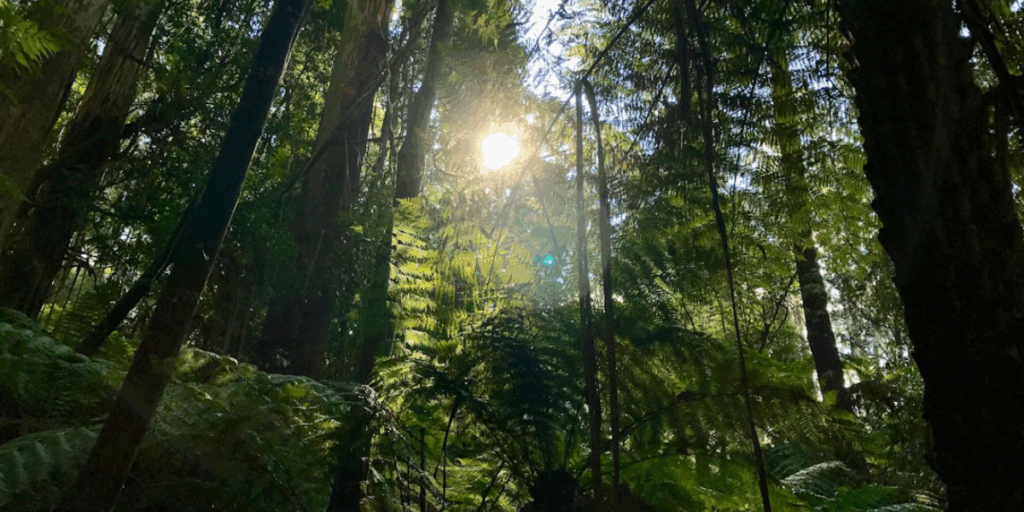What is it, and what can we do to mitigate this challenge to mental health?

“Where did the turtles go?” he asked me, his wide green eyes imploring. My small son and I were walking through the wetlands that had the previous season been filled with water, providing home to loons, turtles, and fish. It had been a year of unrelenting drought in Southern California, and the wetlands were dried up, the ground parched and cracked from blistering heat. I had no answer to his concerned query. The tranquil afternoon I’d imagined for us was something quite other.
Death and destruction of our natural environment has a profound impact on our mental health, with effects experienced to varying degrees based on age, proximity, and exposure. We are intrinsically connected to nature, with both green and blue spaces, such as forests and meadows, lakes and oceans, fostering a calming and settling effect on frazzled emotions. We cultivate psychological resilience when we periodically take time to leave the distractions of our busy urban and suburban lives and immerse ourselves in unpolluted preserves of the planet that nurtures us. Sleep, concentration, and mood all improve with time in green space. We are part of nature, and we are our healthiest when we reconnect with this truth, returning to source. It’s not uncommon for me to prescribe hiking or beach visits to anxious patients in my psychotherapy practice due to the established impacts on mental well-being.1
But as the environment staggers under assaults from human and corporate abuses, this opportunity for mental health grounding shrinks. We lose access to nature as protected lands are sold off for corporate plunder and as lakes dry up and shrink, or forests are reduced through fire. Collective trauma increases as more people than ever before experience escalating natural disasters such as floods, fires, and tornados that take lives and devastate communities. Rising temperatures are consistently correlated with heightened irritability, anger, and agitation, leading to increased violence in homes and communities.2 The sustained record-breaking global temperatures of the last decade contribute to decreasing mental health, both directly and indirectly as more people fall victim to violence. Droughts cause scarcity which leads to wars and migrations, increasing friction between people groups. These dynamics, without question, are profoundly harmful for mental health. Meanwhile, fears for future ramifications of policy decisions made today or inaction against rising global temperature cause heightened anxiety in ecologically conscious citizens.
In my clinical practice, I find young adults particularly prone to anxiety as they watch governments move away from preservation and toward overuse, overconsumption, and neglect of the environment, or fall short of the bold measures needed to prevent the outcomes of which climatologists forewarn. Those who will live longest and be most impacted by the effects of environmental disaster are, naturally, most alarmed, along with many parents of young children. Additionally, neurodivergent clients, who tend to make rapid and multiple connections between data points and thus see logical outcomes more quickly than many, are frequently overwhelmed by environment anxiety.
This anxiety does not have an easy solution, being, as we say, “ecologically valid” (no pun intended). That is, it is based in reality, not delusion. Rather than medications or cognitive restructuring, those suffering from eco-anxiety are best served by a combination of radical acceptance (letting go of what we cannot affect), careful decision-making on information consumption, and engaged activism where we may have influence. Action is a powerful antidote to drive out hopelessness and despair as it empowers us with steps toward preservation and change, while potentially building community with like-minded peers for solidarity and support.
While there is a lot of heavy news with regards to the environment lately, good things are happening through innovation, too. As clean energy becomes cheaper, even people who might not care about preservation are turning to these resources, causing a slow but sure turning of the ship. Though the USA has begun to repudiate green policies, other nations are striding forward. Tune in to hopeful global news alongside local activism for needed change to buoy your spirits and increase your mental resilience. And don’t neglect to immerse yourself often in the preserves of nature that surround you in the spot on this beautiful planet where you reside.
Nature-bathe in the green, breath in the scents of pine or eucalyptus, wildflowers or blossoms, or salty ocean air; perk your ears to notice the varying sounds of bird song and chattering squirrels or waves crashing on a shore. Notice the vibrant colors of the trees and sky and water, the hues of flowers and berries. Feel the softness of mossy ground or shifting sand beneath you and breathe in gratitude for this planet and the privilege of your place in it.
This week was a hard one for me, on every level: clinical practice, writing, family, health. And then on Friday I impulsively stepped off the road along which I was walking into the verdant natural rain forest of my home province in British Columbia, inhaled the scent of ponderosa pines, felt the ground give where pine needles soften forest floor. I immediately felt myself exhale a degree of tension I wasn’t even fully aware I carried. My heartbeat slowed, my spirits lifted there amongst the towering trees. Everything becomes quiet in the stillness of nature’s sanctuary.
Embrace and protect. Breathe deeply. And make the changes you can where you are.
